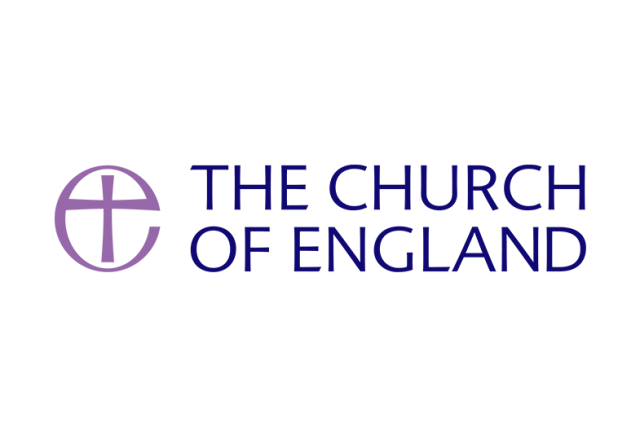
Hope and Heartsickness
August 8, 2025
Whose Kingdom Come?
September 25, 2025By Jarel Robinson-Brown
The first time I sensed a vocation to ordained ministry, I knew that it would be a vocation of both mind and heart. It is why, years later, I still describe myself as bi-vocational and use the phrase ‘scholar-priest’. The necessity of this hyphenated language points, I think, to some of the underlining concerns raised recently in a lecture and article[i] by The Reverend Professor Sarah Coakley about theology and parish life. Like Coakley, I am convinced that theology can enliven the world, resource congregational life, enhance people’s spiritual development, and is crucial to the essence of the institutional Body of Christ. However, the value of theology to the everyday is rarely appreciated by those in the pews, or the wider communities in which ‘we’ – that is ‘theologians’ who have been trained and educated in universities – feel when we seek to do theology in these spaces.
This problem is at least two-fold and it is here that Coakley and I present different diagnoses. Firstly, I believe the disinterest in theology in the parish is rooted in the desire among an educated elite to own the title ‘theologian’, and to preserve the subject from ‘others’ who might say and do things with God that makes us deeply uncomfortable. Secondly, I believe the disinterest in theology in the wider world and church to be rooted in an unacknowledged disconnect between theology, and proclamation/preaching – between thought and praxis.
The fourth-century monk Evagrius of Ponticus (345-399 AD) rather challengingly said that, “A theologian is one who prays, and one who prays is a theologian”.[ii] This startingly simple statement is worth sitting with, for it situates the very work of theology as that which begins in our own seeking. A theologian then is one who is foolish enough to seek what cannot be seen, or defined once and for all – the task is not so much to have the answer, but to embrace the unanswerable question. One might ask how it is that so much early Christian material which constitutes ‘serious’ theology and which originated as sermons, catecheses, commentary, and pastoral letters remains so firmly viewed as the property of the academy either as history, philosophy, sociology or religious studies. Part of the reason the faithful in our churches ‘switch off’ when things get ‘too theological’, is in part because they do not yet know that they are already theologians. This should not be surprising in a Church which treats hierarchy as though it had an eternal value, sees ordination (particularly to the priesthood!) as a ‘graduation’ out of the regular demands of general Christian discipleship, and which truly seems to believe that one can know and reflect not only on theology, but on Scripture and ministry in just 2-4 years of training. We need to reclaim Christian discipleship, both lay and ordained, as that lifelong seeking in which none of us come to completion this side of heaven.
Now, none of this is to say that Theology will not at times necessitate a specialized vocabulary. Theology will be analytical, comparative, constructive, and philosophical. It will wrestle with paradoxes and uncertainties, and be in dialogue with other subjects. However, its main subject should always be the life of the human being in relationship with the life of God, as Trinity. And I suspect it is here that we lose most of our potential audience. Too often Theology does not sound as though it knows, cares about or understands the worlds that real flesh and blood humans inhabit. At worst it seems to demand dishonesty when being done in the church, and is too often deliberately obfuscatory when done in the academy! Often theology does not appear to pose a threat to systems of oppression and injustice – many of which have theologies at play within them. One will regularly encounter theology which seemingly refuses to demand from its students an attention to the world God in Christ shows, the kind of attention that refuses to look away from the difficult, the disturbing and the diabolical.
Yet, this is all a choice. It need not be so. Theology undoubtedly becomes engaging, attractive and spiritually nourishing when it is honest about human life. But I am yet to be convinced that the ‘Parish’ Church and those who might lead it are in most places ready (or indeed able) to garner the kind of honesty that open theological dialogue in a porous and diverse community will necessitate. I remind the people I serve regularly that despite the fact that I may be standing at the altar, and have my name etched in stone under a list of predecessors, they have (almost all) been on the journey of following Jesus Christ for longer than I have been alive, which has value – real value – to me and to the community we are in.
There are no easy answers to Coakley’s charge that the Church of England should bring “creative, alluring, and deep theology back into the parish (from which it seems to have been banished)”[iii] but I would want to suggest that what she calls the ‘self-flagellating dilemma’ the Church is in, might be better called ‘repentance’. Further to this, I do think the malaise that much academic theology suffers is the same malaise that much British Anglican preaching is stricken with – what we might call a lack of ‘assurance’. P.T. Forsyth once said: “The [Biblical] text is the congregation’s one protection against the preacher”. I want to say that prayer is equally a congregation’s protection against a certain kind of theologian. Soteriology will be taken seriously when theologians in the academy are found in the posture of the saved, and pneumatology seen as having relevance when the Spirit disrupts the armchair theologian’s comfort. Augustine says in terms of our work as theologians that we see to the extent that we die to the world, and to the extent that we live in the world we fail to see.[iv] If God has indeed spoken to us in His Son then we should teach, write, study and live as though that Son still had a voice in the person of the Spirit.
God is not a problem to be fixed, nor a being to be proven as ‘real’. God is a life to be loved and known, proclaimed and adored in the life, death and resurrection of Jesus of Nazareth. This is why the vocation of a Theologian is the vocation of every baptized Christian. In the crucible of prayer and praxis it is, in the last analysis, only one’s obedience to the disruptive Triune voice that makes us what we claim we are: theologians. One might suggest – controversially – that it is here, on the ground of obedience or disobedience to what we know to be the voice of God, that Theologians and Scholars, Christians and Atheists, part company. Here that Priests and Prophets diverge. And here that one retains or loses the credibility of what only love and courage can endow upon the labours, writings, preaching and witness of a lifetime. Until we see this as part of the common vocation of the baptized, there can be no credible, truly evangelical, theological witness in the world. So many of our lay faithful are disabled from living a theological life because they exist in a world which demands their constant attention and labour, and we have at almost every turn allowed them to be consumed with an atheistic anxiety over the future of bricks and mortar – but if God cannot save God’s Church, what use is God in daily life?
I want to reclaim the kind of proclamation that is visible to me as a parish priest and theologian. It is not clever, but it is credible. It makes itself known rather profoundly in the wilting voice of the widow who at the end of a pastoral visit, suddenly declares her total trust in Jesus in the very midst of her loss and grief, and it this kind of proclamation that my own relatives give to the world as we, as Jamaican Christians, clap and sing whilst lowering our loved-one into the depths of the grave. And it is this kind of proclamation that the Exultet sung under the fragile light of one flickering flame in a Church submerged in dark despair makes tangible on Holy Saturday, and it is this that the Church bears witness to when it celebrates in its sacraments of holy matrimony and ordination the sacrificial love people embrace in a world of endless options. This, all of this, is theology. A relentless, quietly resolute, pointing to Jesus as the deepest reality in the world, and in our lives. This is the work that only the theologian, as a baptized person of prayer, can do in a world so seduced by death, disillusion, denial and despair – and it is this that our parishes must regain as central to the life of the Body of Christ today. The academy could learn something from the parish!
The Reverend Canon Jarel Robinson-Brown is Vicar at St German’s Church, Cardiff. He is Visiting Scholar at Sarum College, Salisbury and Visiting Fellow at Regent’s Park College, University of Oxford.
Notes
[i] https://www.churchtimes.co.uk/articles/2025/8-august/comment/opinion/bring-theology-back-to-the-parishes
[ii] Evagrius Ponticus, Chapters on Prayer, Chapter 61.
[iii] https://www.churchtimes.co.uk/articles/2025/8-august/comment/opinion/bring-theology-back-to-the-parishes
[iv] Augustine of Hippo, On Christian Teaching, Book Two, VII – VIII





1 Comment
As a theologically trained lay person, whose relationship with the clergy has often been ambiguous and sometimes fraught with subconscious suspicion, I agree wholeheartedly with what Jarel says. In a large and fairly diverse, but generally “liberal” congregation (including other lay people with such training, as well as a number of retired clergy who most of the time function as ordinary worshippers), I and my fellows are “doing theology” all the time. Sometimes the licensed clergy acknowledge this, and we work as partners. Sometimes, in an essentially hierarchical structure, that just seems to cost them too much. But I am deeply grateful to live in a community where the boundaries are at least a little blurred! And we are a growing congregation, though a world away from most of those who claim to be that. The two facts may be connected.
Anthony Woollard